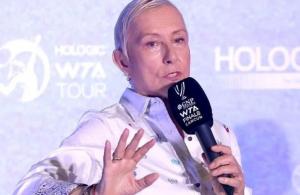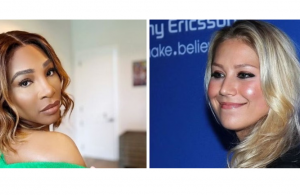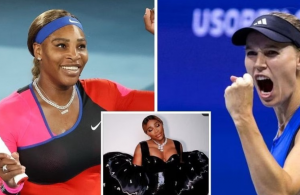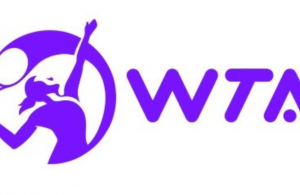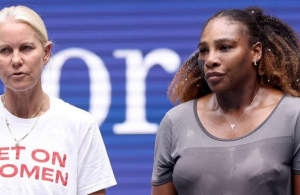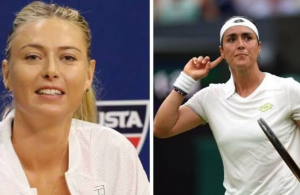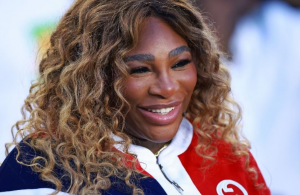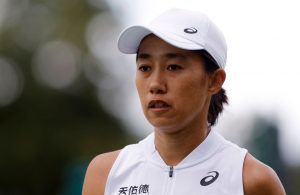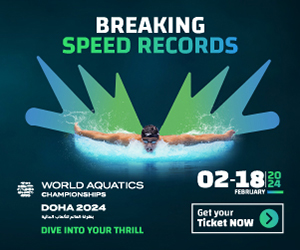- Molly O’Callaghan, a 19-year-old swimmer from Australia, etched her name in the annals of swimming history with a remarkable performance in the Women’s 200m Freestyle event
- Akshay Bhatia, 21, Wins his First PGA Tour Title at the Barracuda Championship
- Bruno Fernandes Replaces Harry Maguire as New Man Utd Captain
- Lionel Messi Surprises Teammate in group chat ahead of Grand Unveiling
- Man Utd Sign Keeper Andre Onana from Inter
As Novak Djokovic’s Adria Tour becomes Covid-hotspot, tennis plays spoilsport
- Updated: June 23, 2020
- 893

Novak Djokovic’s stubborn stance to hold an exhibition tournament draws flak after four, including two players, get infected with Covid-19.
Croatian tennis player Borna Coric confirmed he has tested positive for Covid-19 on Monday, a day after Grigor Dimitrov’s positive test led to the cancellation of the Adria Tour final in Zadar. Further announcements are expected as national news agencies have quoted the head of Zadar’s local crisis response team, Sime Vickovic, saying that four tennis players and two coaches tested positive.
The diagnoses came after the charity exhibition series, organised by world No. 1 Novak Djokovic, was criticised as footage revealed minimum social distancing measures, packed venues, and player trips to night clubs and basketball courts. As a result, the initial optimism of professional sports resuming after the lockdown has been replaced by a fresh threat, as the number of coronavirus infections swells, with cases now reported in other returning sports such as golf.
Adria Tour
At Djokovic’s behest, numerous tennis players flew to the Balkans for the tour, which kicked off last week in the Serb’s hometown of Belgrade. Other than Djokovic, Dimitrov, and Coric, the tournament included Dominic Thiem (world No. 3), Alexander Zverev (7), and 2014 US Open champion Marin Cilic.
Throughout the weekend, Djokovic and Co were seen hugging, shaking hands and mingling with the crowd. Within a fortnight, Dimitrov had played tennis in two packed stadiums in two different countries, notwithstanding games of football and basketball, and a visit to an indoor cabaret club in Belgrade last week with players.
Three-time Grand Slam semi-finalist Dimitrov then faced Coric in Saturday’s semi-final in Zadar, where he was visibly ailing and suffered a 4-1, 4-1 loss.
After Dimitrov’s announcement on Sunday, Djordje Djokovic, tournament director, and Novak’s younger brother, said that “absolutely none (of the players) have symptoms.”
“Before coming to Zadar, Grigor was in his country. We don’t know if he was infected there, but it is certain that everyone who was in close contact with him will be tested tonight,” Djordje told reporters.
This was after Montenegro called off the third leg of the tournament, scheduled for June 27 and 28 after Croatia and before the conclusion in Bosnia, as it became apparent Serbia did not match strict health guidelines.
Serbia, which has had 12,894 positive cases with 261 deaths, witnessed a near-total lifting of the government restrictions earlier this month. A near-capacity crowd of 25,000 turned out for the Belgrade derby on June 10, three days before Djokovic’s tournament kicked off. Tickets to the Adria Tour were sold out in minutes and fans thronged the stands, with few wearing masks.
“You can also criticise us and say this is maybe dangerous. But it’s not up to me to make the calls about what is right or wrong for health. We are doing what the Serbian government is telling us,” Djokovic said at the opening ceremony.
Players absent at the invitational tour criticised the tournament as news broke. Chief among them was Australian Nick Kyrgios, who retweeted Coric’s positive test announcement with the caption: “Boneheaded decision to go ahead with the ‘exhibition’ speedy recovery fellas, but that’s what happens when you disregard all protocols. This IS NOT A JOKE (sic).”
No-vaxx
The unravelling of Djokovic’s charity tournament comes in the aftermath of the Serb appearing to relax his stance on playing at the US Open. After describing the health protocols for the tournament starting August 31 as “extreme” and “impossible”, Djokovic on Friday said that he was “extremely happy” by the proposed regulations.
This is the latest episode in what has been an eventful lockdown for the President of ATP Player Council. In April, during a video chat with fellow Serbian athletes, Djokovic said: “Personally, I am opposed to vaccination and I wouldn’t want to be forced by someone to take a vaccine in order to be able to travel. But if it becomes compulsory, what will happen? I will have to make a decision.”
Former Wimbledon champion Marion Bartoli urged Djokovic to “think about humanity and the rest of your mates on the circuit. There are times in life when certain personal convictions need to be put aside for the common good of the community,” she said while former World No. 1 Andy Roddick said, “The bottom line is not whether or not he believes in vaccinations, it’s what’s safest to bring tennis to the forefront on a global stage.”
World No. 2 Rafael Nadal added that if vaccines are made compulsory, “then Djokovic will have to be vaccinated if he wants to keep playing tennis at the top level.” And while support came in the form of 156th-ranked Denis Istomin, who claimed “I wouldn’t want to be forced by someone to take a vaccine in order to be able to travel,” Djokovic backtracked a bit from his stance. “I am keeping an open mind, and I’ll continue to research this topic…” he said.
Spirituality over science
Long the epitome of fitness on the tennis tour, Djokovic’s ‘Live, Laugh, Love’ brand of spirituality and advocacy of alternate medicine has often clashed with sports science. He famously delayed an elbow surgery, and “cried for days” after ultimately going under the knife, feeling “like I had failed myself.”
At the 2008 US Open, Roddick had mocked Djokovic as a hypochondriac who was suffering from “cramp, bird flu, anthrax, SARS, and common cold and cough”.
Djokovic’s gluten intolerance was subsequently diagnosed after a doctor placed a slice of white bread on his stomach. He believes in telekineses and telepathy and hired a hug-loving coach Pepe Imaz, who taught levitation.
But he came under fire in May for supposedly endorsing a product that claims to stimulate brain cell growth. Djokovic spent three Instagram live sessions with nutritionist Chervin Jafarieh, whose company sells herbal supplements costing Rs 5,000 for 50gm. The pair talked about how humans could change the molecular composition of food and water with their thoughts and emotions.
“I’ve seen people and I know some people that, through that energetical transformation, through the power of prayer, through the power of gratitude, they manage to turn the most toxic food or the most polluted water, into the most healing water… Because water reacts and scientists have proven that, that molecules in the water react to our emotions, to what is being said,” said Djokovic while Jafarieh nodded in agreement.
Player-turned commentator Mary Carillo was “disturbed” by the conversation, adding: “This is dangerous stuff and when I looked at it… it already had half a million hits.”

